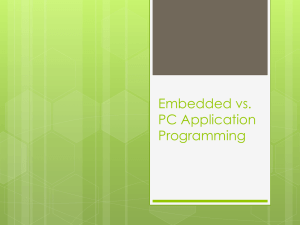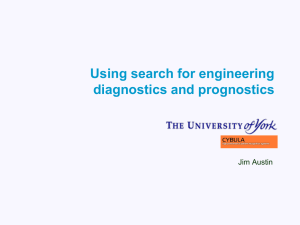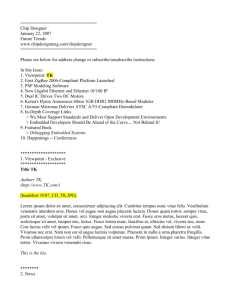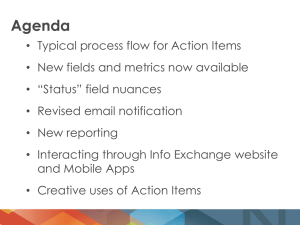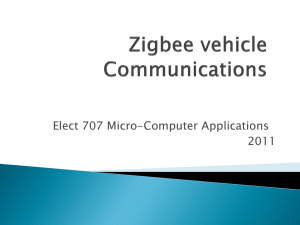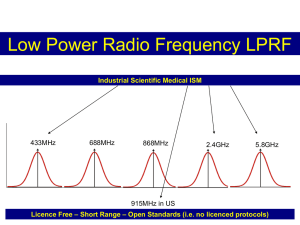sensorless illumination control of a networked led
advertisement
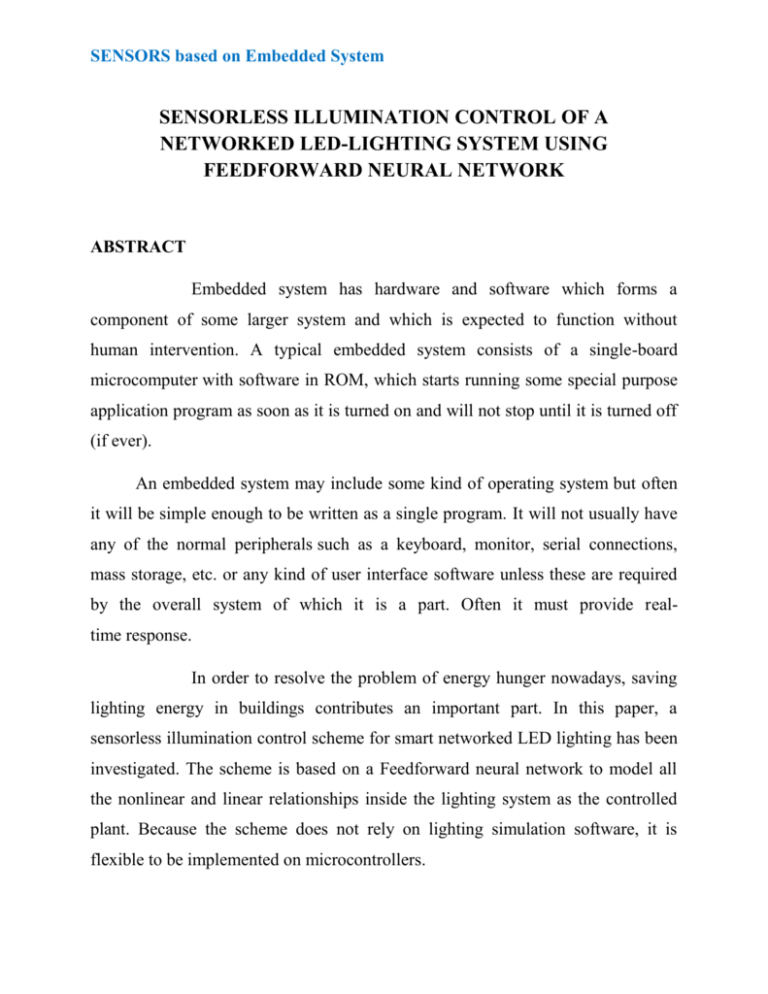
SENSORS based on Embedded System SENSORLESS ILLUMINATION CONTROL OF A NETWORKED LED-LIGHTING SYSTEM USING FEEDFORWARD NEURAL NETWORK ABSTRACT Embedded system has hardware and software which forms a component of some larger system and which is expected to function without human intervention. A typical embedded system consists of a single-board microcomputer with software in ROM, which starts running some special purpose application program as soon as it is turned on and will not stop until it is turned off (if ever). An embedded system may include some kind of operating system but often it will be simple enough to be written as a single program. It will not usually have any of the normal peripherals such as a keyboard, monitor, serial connections, mass storage, etc. or any kind of user interface software unless these are required by the overall system of which it is a part. Often it must provide realtime response. In order to resolve the problem of energy hunger nowadays, saving lighting energy in buildings contributes an important part. In this paper, a sensorless illumination control scheme for smart networked LED lighting has been investigated. The scheme is based on a Feedforward neural network to model all the nonlinear and linear relationships inside the lighting system as the controlled plant. Because the scheme does not rely on lighting simulation software, it is flexible to be implemented on microcontrollers. SENSORS based on Embedded System The scheme, moreover, can provide not only high accuracy in modeling but also global optimum in energy saving. Without using light sensors in its control loop, the approach can save significant cost and provide ease of installation as well. In addition, it also has the strength of fast response owing to Feedforward control based on neural networks. The experimental results show that the approach can easily attain more than 95% modeling accuracy and also improve more than 28% energy saving with its optimal nonlinear multiple-input multiple-output control. PROPOSED SYSTEM In this project, we are going to implement sensorless illumination control of networked LED lighting system using Feedforward neural network. With help of PC, we can control the LED lights Automatically and Manually. In Auto mode, LDR will sense the intensity of light and according to that LED will glow, same for another node. And all these process can be monitored in PC. In manual mode, we can controlled the LED lights from PC. Auto and manual process done from PC through ZIGBEE. SENSORS based on Embedded System BLOCK DIAGRAM: Node 1: ZIGBEE UART LDR 1 ADC MICRO CONTROLLER RELAY LED LIGHT Node 2: ZIGBEE UART LDR 2 ADC MICRO CONTROLLER RELAY LED LIGHT SENSORS based on Embedded System RECEIVING END: ZIGBEE HARDWARE REQUIREMENTS: MICROCONTROLLER LDR UART RELAY ZIGBEE PC LED LIGHT SOFTWARE REQUIREMENTS: KEIL COMPILER PROTEUS SOFTWARE UART PC
